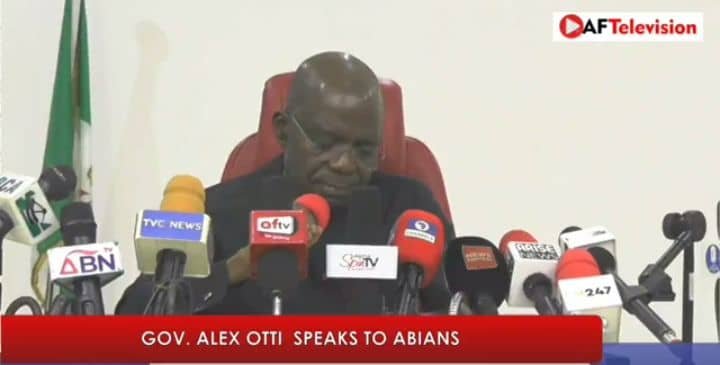Governor Otti and the Cry of the Common Man
The concept of the “Common Man” is deeply rooted in American history, particularly during the presidency of Andrew Jackson. Jackson’s humble beginnings, rising from poverty to becoming the seventh President of the United States, resonated with many Americans who saw him as one of their own.
A brief history of the term – Common Man
This term became mainstream in 1829, and marked a significant shift in American politics. Jackson’s presidency was characterized by his commitment to democratic ideals, prioritizing the interests of the common people over those of the wealthy elite.
Some key aspects of Jackson’s policies and their impact on the common man include:
- Expanding Government Spending on road infrastructure: Jackson aimed to inject huge finances into government infrastructure projects, to provide jobs and alleviate the financial burden on citizens.
- Transparency in Government Appointments: Jackson introduced transparency in government appointments, ensuring that positions were filled based on merit rather than political connections.
Jackson’s vision for America was built on the principles of individualism and self-reliance, believing that every citizen should have equal rights and opportunities. His legacy continues to shape American politics and the concept of the “Common Man.”
Could there be a nexus between Jackson’s policies and Otti’s?
Abia State’s political information complex is a multifaceted web of governance, parties, and elections. The state is currently led by Governor Alex Chioma Otti, who took office on May 29, 2023.
Governance Structure:
The State has a governor, deputy governor, senators, house of representatives members, and state assembly representatives. The Executive Governor is Dr Alex Chioma Otti, OFR while the deputy governor is Engr. Ikechukwu Emetu.

Economic Development:
The state’s economy is driven by crude oil and natural gas production, agriculture, and medium-scale manufacturing. The state has a high concentration of manufacturing clusters in Aba.
How does these structure affect the welfare of the common man in the state?
The governor has initiated various projects aimed at improving infrastructure state wide stretching throughout the 17 local government areas, and instilling transparency in governance. However, the effectiveness of these initiatives remains a subject of debate among the populace. The common man in Abia continues to grapple with basic challenges such as unemployment, poverty, and limited access to essential services like healthcare and electricity.
The state’s economic fundamentals reveal a worrying trend. Abia’s GDP stands at ₦2.78 trillion, ranking 24th in Nigeria. The inflation rate is alarmingly high at 20.5%, surpassing the national average. Poverty and unemployment rates are equally concerning, with 27.4% and 34.6% of the population affected, respectively. These statistics underscore the struggles faced by the common man in Abia.
Street inflation has taken a toll on the purchasing power of Abia’s residents. Food prices have skyrocketed, with a bag of 50kg rice costing between ₦120,000 and ₦150,000, while a basket of tomatoes sells for ₦20,000 to ₦35,000. Transportation costs have also increased, with bus/Keke fares ranging from ₦250 to ₦500 within Umuahia. The average daily income of ₦1,500 to ₦3,000 is grossly insufficient to go meet these expenses.
The financial status of the poor and common people in Abia is precarious. Savings rates are extremely low, with less than 10% of the population able to save. Access to credit is limited, with fewer than 20% having access to formal credit facilities. This exacerbates their vulnerability to economic shocks.
In Abia, the new minimum wage of ₦70,000 per month, may leave workers struggling to make ends meet. A food basket costing ₦71,900 to ₦85,000 per month exceeds the minimum wage, highlighting the impossibility of survival on such meager earnings. Healthcare, another essential service, remains inaccessible to many due to exorbitant costs.
Despite these challenges, opportunities abound in Abia. Agriculture, small-scale industries, solid minerals, tourism, and digital economy offer untapped potential for growth. To harness these opportunities, Governor Otti’s administration is prioritizing economic diversification, infrastructure development, job creation, financial inclusion, and social welfare programs.
Abia’s political information complex has far-reaching implications for the common man. Addressing the state’s economic and social challenges requires effective governance, strategic planning, and people-centric policies. By doing so, Abia is unlocking its potential, improve living standards, and ensure a brighter future for its citizens.
Dr Chukwuemeka Ifegwu Eke writes from the University of Abuja Nigeria.







